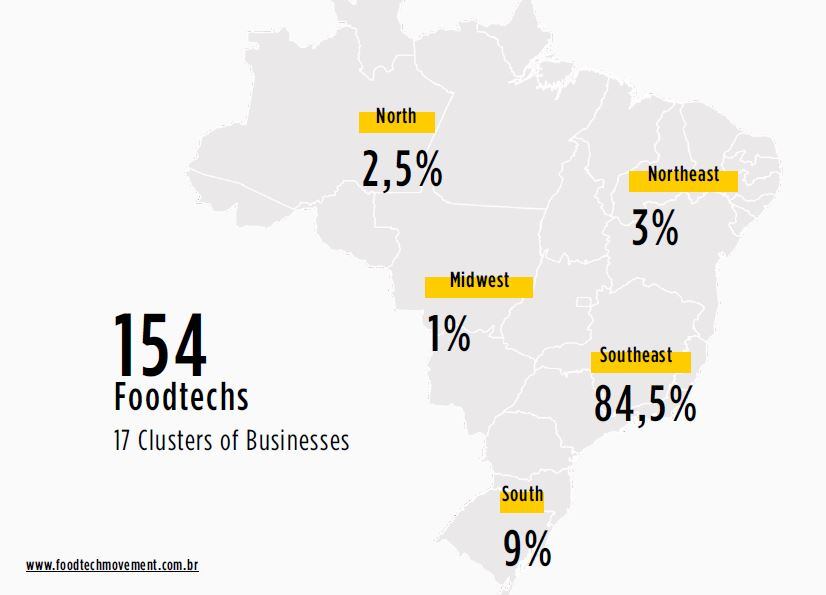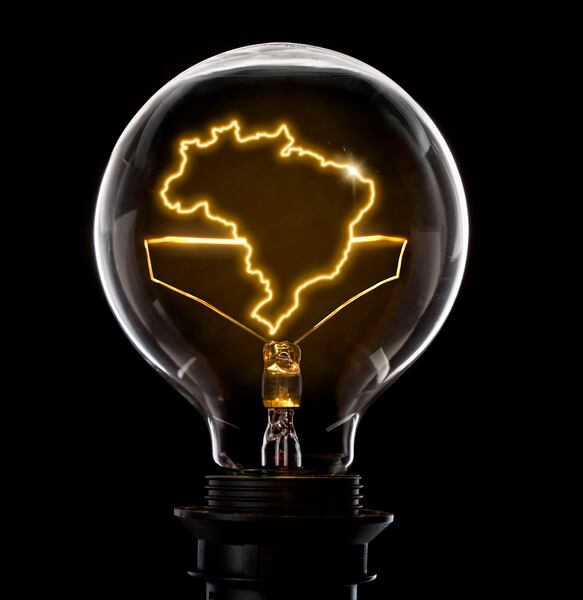The map notes where the start-ups are based and the sector in which they operate, such as smart agriculture, processing, logistics or recycling and waste.
According to the consultancy, the map will help “facilitate the understanding of the current technological revolution in the food chain”.
Ana Carolina Bajarunas, founder and CEO of Brazil’s FoodTech Movement, started the map last year with data from 53 start-ups. At the last count, there were 172.
The map shows that most are concentrated in the country’s financial and business capital, Sao Paolo.
“In our map, 80% of the companies are in the south, mostly in Sao Paolo. Brazil is a very huge country but also very disparate in terms of economic activity,” she said.
Ingredient innovation lacking

It also points out areas where investment and activity are lacking.
“In Brazil, there are start-ups doing good work in the area of service and delivery but we don’t have many Impossible Foods - start-ups working with high tech to develop new proteins for instance,” she told FoodNavigator-LATAM.
“Although recently we had the Fazenda do Futuro launch [read more here], which created a great buzz, and big companies are trying to find their place in the movement too.”
According to Bajarunas, one of the biggest obstacles facing start-ups in Brazil is the fractured nature of the sector.
“Our ecosystem not so united, investors and companies and entrepreneurs are not […] talking the same language or working in the same place.”
“Companies and universities, investors and entrepreneurs are not doing the same job together. So we are bringing all the stakeholders together at the same events [so they can] see what is happening and share stories.”

Bajarunas sees this element as the main role of the FoodTech Movement.
“[We are] also showing them what is happening all around the world so they see the food map and see it’s not theoretical, [global trends] are happening here too.”
Another obstacle facing the movement in Brazil is the socio-demographic make-up of the country, she added.
“The main population in Brazil is poor and medium-class, they don’t know what a term like ‘the food of the future’ means.
“They want to eat well but don’t necessarily know what new plant-based proteins, for instance – and they don’t have enough money to pay so aren’t demanding it yet.”
Bajarunas spoke to FoodNavigator-LATAM after returning from Seeds & Chips conference in Milan, where she was wowed by stories of government support from start-ups based in countries such as Israel.
“Brazilian people are entrepreneurs, we always willing to try new things but the government has never really helped, either [in terms of] education or having an entrepreneurial mind-set.”




